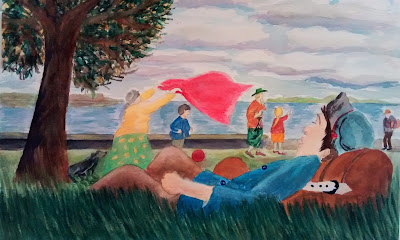You
can encourage your child to do things that reflect his or her interests. Research
shows that people are more satisfied with their careers if they are based on
interests and activities they enjoy. You can help your child identify his or
her interests by talking about what he or she likes to do, by discussing details,
making plans and asking opinions.
Ask helpful questions:
- What
is your favorite school subject?
- What
extracurricular activities do you enjoy the most?
- What
are your hobbies?
- What
do you like to do with friends?
- What
special skills do you think you have?
- What
have you done that you are most proud of?
- What
do you like to do in your free time?
- What
interests you the most?
If
your child doesn't seem to have any interests help your child explore the world
around him or her.
Pay
attention to:
- the
activities your child likes;
- the
books your child reads;
- the
television shows your child watches;
- the
websites your child visits; and
- the
way your child spends his or her free time.
If
you find something sign your child for a class of his/her interest or even
attend it with him/her. For example, we participate in classes organized by
MoMath Museum, NYC. The last one was “Puzzles and Paradoxes: A Mathematical
Potpourri” with puzzle designer Christopher Morgan.
That
evening we learned: What kind of surprises can we find in linked mobius
strips? How we can make a dollar bill vanish, geometrically? We joined
puzzle designer Christopher Morgan for a night full of math paradoxes, magic
tricks, and surprising mathematical solutions, all from the collections of puzzle
masters Martin Gardner and Lewis Carroll.




























